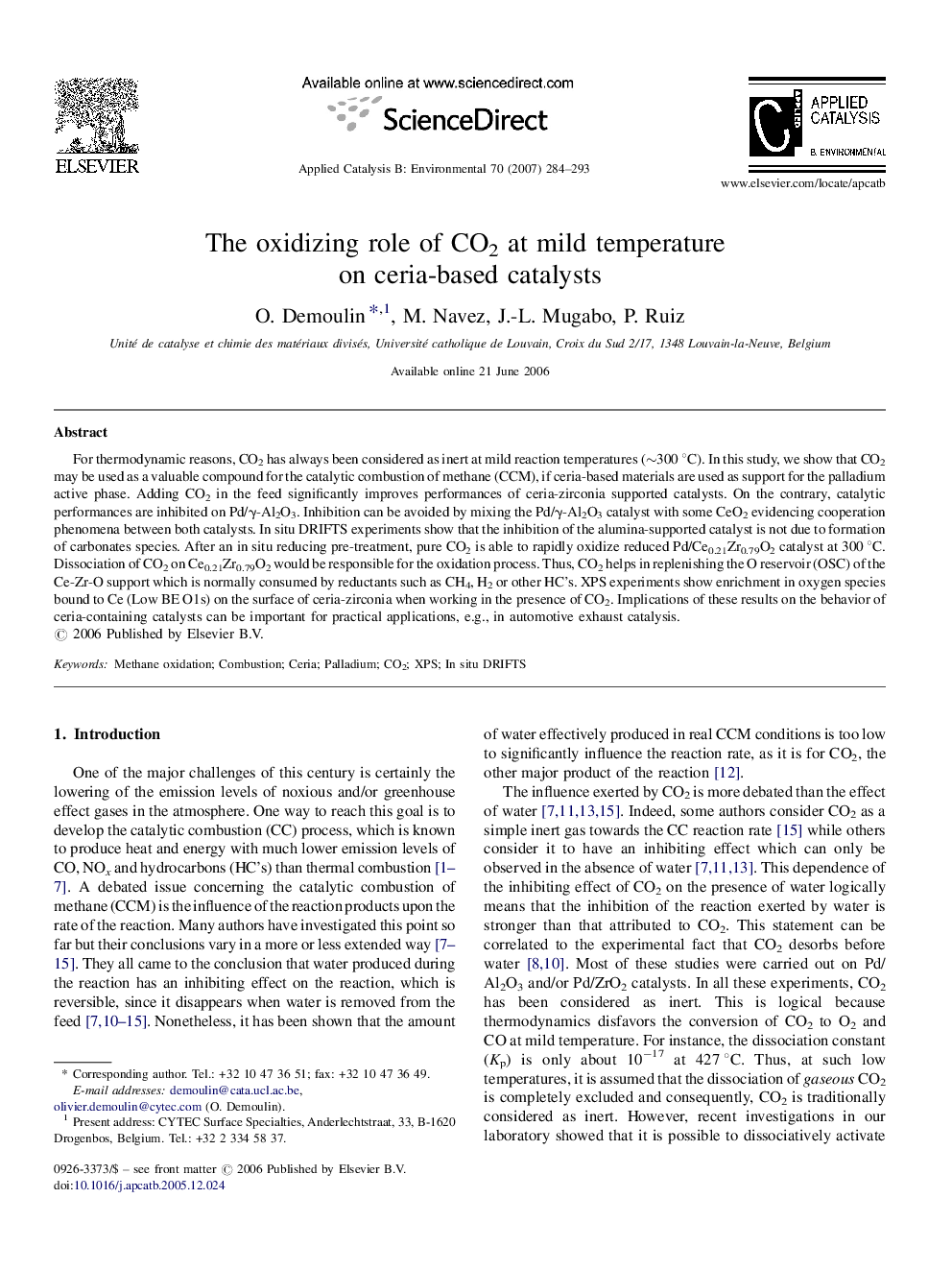| Article ID | Journal | Published Year | Pages | File Type |
|---|---|---|---|---|
| 48809 | Applied Catalysis B: Environmental | 2007 | 10 Pages |
For thermodynamic reasons, CO2 has always been considered as inert at mild reaction temperatures (∼300 °C). In this study, we show that CO2 may be used as a valuable compound for the catalytic combustion of methane (CCM), if ceria-based materials are used as support for the palladium active phase. Adding CO2 in the feed significantly improves performances of ceria-zirconia supported catalysts. On the contrary, catalytic performances are inhibited on Pd/γ-Al2O3. Inhibition can be avoided by mixing the Pd/γ-Al2O3 catalyst with some CeO2 evidencing cooperation phenomena between both catalysts. In situ DRIFTS experiments show that the inhibition of the alumina-supported catalyst is not due to formation of carbonates species. After an in situ reducing pre-treatment, pure CO2 is able to rapidly oxidize reduced Pd/Ce0.21Zr0.79O2 catalyst at 300 °C. Dissociation of CO2 on Ce0.21Zr0.79O2 would be responsible for the oxidation process. Thus, CO2 helps in replenishing the O reservoir (OSC) of the Ce-Zr-O support which is normally consumed by reductants such as CH4, H2 or other HC's. XPS experiments show enrichment in oxygen species bound to Ce (Low BE O1s) on the surface of ceria-zirconia when working in the presence of CO2. Implications of these results on the behavior of ceria-containing catalysts can be important for practical applications, e.g., in automotive exhaust catalysis.
